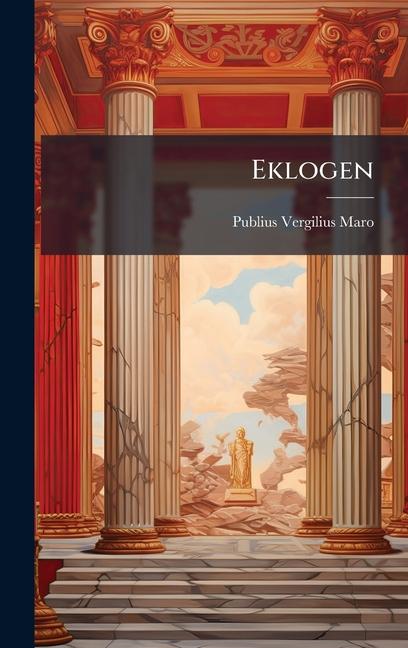
Zustellung: Sa, 02.08. - Do, 07.08.
Versand in 2 Wochen
VersandkostenfreiBestellen & in Filiale abholen:
"Eklogen," also known as the "Eclogues" or "Bucolics," is a collection of ten pastoral poems by the Roman poet Virgil (Publius Vergilius Maro). Written between 42 and 39 BC, these poems present an idealized vision of rural life and explore themes of love, loss, and political upheaval. Influenced by the Greek poet Theocritus, Virgil's "Eclogues" established the pastoral genre in Latin literature and had a profound impact on subsequent Western literature and art.
The poems feature shepherds engaging in singing contests, lamenting lost loves, and reflecting on the natural world. Virgil's beautiful language and evocative imagery create a timeless portrait of Arcadia, a mythical land of idyllic simplicity. Though seemingly simple, the "Eclogues" also subtly address the turbulent political climate of Virgil's time, offering veiled commentary on the Roman civil wars and the rise of Augustus.
"Eklogen" remains a cornerstone of classical literature, valued for its poetic beauty, its exploration of universal human experiences, and its enduring influence on Western culture.
This work has been selected by scholars as being culturally important, and is part of the knowledge base of civilization as we know it. This work was reproduced from the original artifact, and remains as true to the original work as possible. Therefore, you will see the original copyright references, library stamps (as most of these works have been housed in our most important libraries around the world), and other notations in the work.
This work is in the public domain in the United States of America, and possibly other nations. Within the United States, you may freely copy and distribute this work, as no entity (individual or corporate) has a copyright on the body of the work.
As a reproduction of a historical artifact, this work may contain missing or blurred pages, poor pictures, errant marks, etc. Scholars believe, and we concur, that this work is important enough to be preserved, reproduced, and made generally available to the public. We appreciate your support of the preservation process, and thank you for being an important part of keeping this knowledge alive and relevant.
The poems feature shepherds engaging in singing contests, lamenting lost loves, and reflecting on the natural world. Virgil's beautiful language and evocative imagery create a timeless portrait of Arcadia, a mythical land of idyllic simplicity. Though seemingly simple, the "Eclogues" also subtly address the turbulent political climate of Virgil's time, offering veiled commentary on the Roman civil wars and the rise of Augustus.
"Eklogen" remains a cornerstone of classical literature, valued for its poetic beauty, its exploration of universal human experiences, and its enduring influence on Western culture.
This work has been selected by scholars as being culturally important, and is part of the knowledge base of civilization as we know it. This work was reproduced from the original artifact, and remains as true to the original work as possible. Therefore, you will see the original copyright references, library stamps (as most of these works have been housed in our most important libraries around the world), and other notations in the work.
This work is in the public domain in the United States of America, and possibly other nations. Within the United States, you may freely copy and distribute this work, as no entity (individual or corporate) has a copyright on the body of the work.
As a reproduction of a historical artifact, this work may contain missing or blurred pages, poor pictures, errant marks, etc. Scholars believe, and we concur, that this work is important enough to be preserved, reproduced, and made generally available to the public. We appreciate your support of the preservation process, and thank you for being an important part of keeping this knowledge alive and relevant.
Produktdetails
Erscheinungsdatum
22. Mai 2025
Sprache
englisch
Seitenanzahl
60
Autor/Autorin
Publius Vergilius Maro
Verlag/Hersteller
Produktart
gebunden
Gewicht
263 g
Größe (L/B/H)
234/156/6 mm
ISBN
9781024558432
Bewertungen
0 Bewertungen
Es wurden noch keine Bewertungen abgegeben. Schreiben Sie die erste Bewertung zu "Eklogen" und helfen Sie damit anderen bei der Kaufentscheidung.









